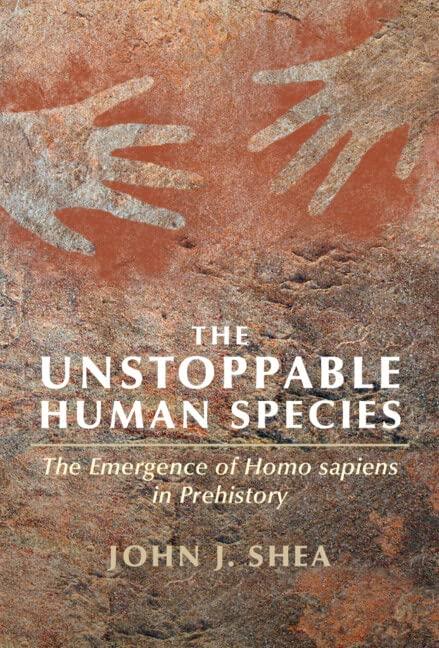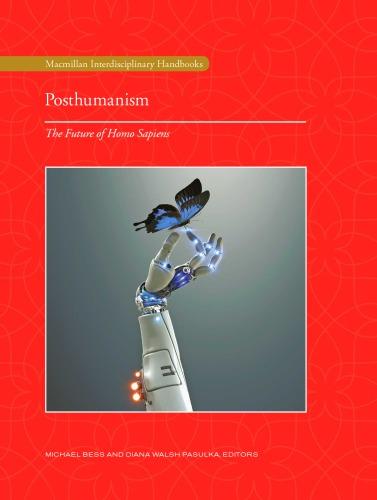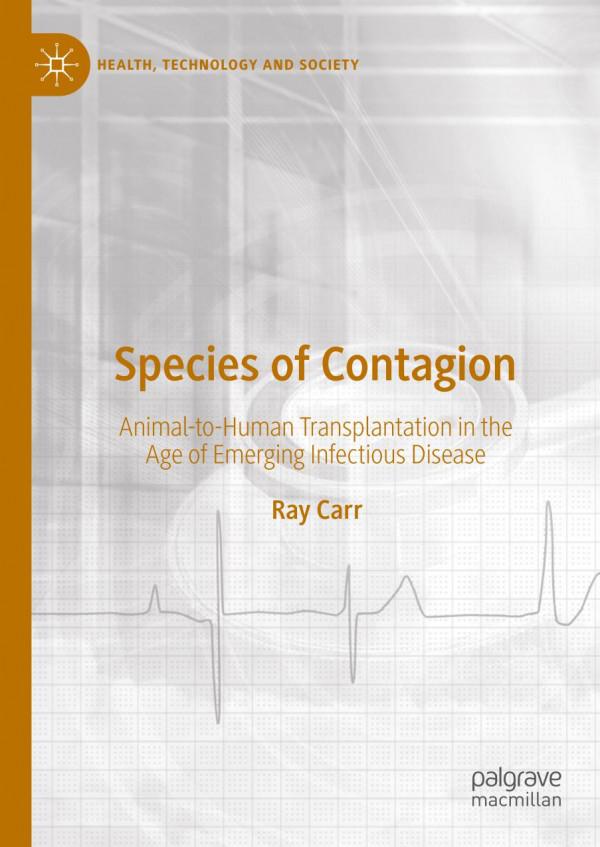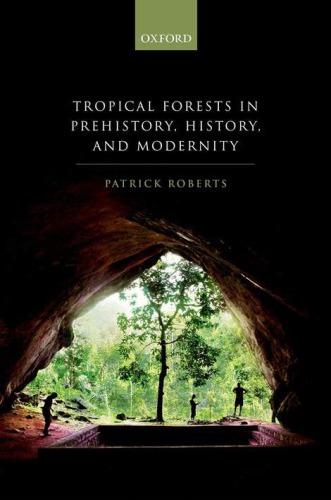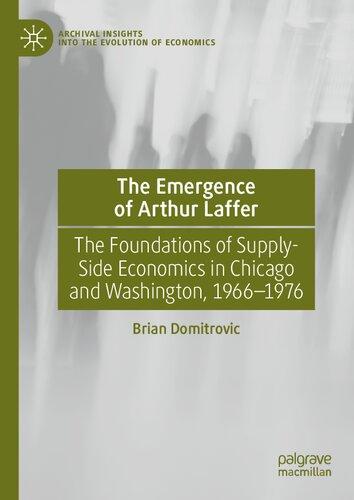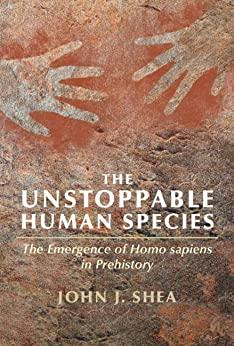THEUNSTOPPABLEHUMAN
SPECIES
TheEmergenceof HomoSapiens inPrehistory
StonyBrookUniversity
ShaftesburyRoad,Cambridge ,UnitedKingdom
OneLibertyPlaza, thFloor,NewYork, ,USA
WilliamstownRoad,PortMelbourne, ,Australia
–, rdFloor,Plot ,SplendorForum,JasolaDistrictCentre,NewDelhi – ,India
PenangRoad,#–/,VisioncrestCommercial,Singapore
CambridgeUniversityPressispartofCambridgeUniversityPress&Assessment, adepartmentoftheUniversityofCambridge.
WesharetheUniversity’smissiontocontributetosocietythroughthepursuitof education,learningandresearchatthehighestinternationallevelsofexcellence.
www.cambridge.org
Informationonthistitle: www.cambridge.org/
©CambridgeUniversityPress&Assessment
Thispublicationisincopyright.Subjecttostatutoryexceptionandtotheprovisions ofrelevantcollectivelicensingagreements,noreproductionofanypartmaytake placewithoutthewrittenpermissionofCambridgeUniversityPress&Assessment.
Firstpublished
AcataloguerecordforthispublicationisavailablefromtheBritishLibrary. LibraryofCongressCataloging-in-PublicationData
:Shea,JohnJ.(JohnJoseph),author.
:Theunstoppablehumanspecies:theemergenceofhomosapiensinprehistory/JohnJ.Shea.
:Cambridge,UnitedKingdom;NewYork,NY:CambridgeUniversityPress, .| Includesbibliographicalreferencesandindex.
:
(print)|
(ebook)| (hardback)| (paperback)| (epub) : :Humanbeings–Origin.|Humanevolution.|Prehistoricpeoples.|Survival. : . (print)|
(ebook)| ./–dc/eng/
LCrecordavailableat
LCebookrecordavailableat
Hardback
-
Paperback
CambridgeUniversityPress&Assessmenthasnoresponsibilityforthepersistence oraccuracyofURLsforexternalorthird-partyinternetwebsitesreferredtointhis publicationanddoesnotguaranteethatanycontentonsuchwebsitesis,orwill remain,accurateorappropriate.
ForOferBar-Yosef(
CONTENTS
ListofFigures page x
ListofTables xii
ListofBoxes xiii
Preface xv
Acknowledgments xviii
Introduction
AnUnstoppableSpecies? PopulationMovements
QuestionsaboutHumanEvolution:Who,How,andWhy
ExplainingthePast
HowThisBookIsOrganized
HardEvidence
Time:Geochronology
Fossils:PaleontologyandZooarchaeology
Artifacts:Archaeology
Genes:MolecularAnthropology
Summary
WhoAreThesePeople?
HumansasPrimates
HowDoHumansDifferfromOtherAnimals?
HowDoHumansDifferfromOneAnother?
Summary
HowDidTheyGetHere? .......................
ArrowsonMaps
SurvivalArchaeology
TheBigSixSurvivalChallenges
AncestralSurvivalSkills
AnIntegrativeAncestralSurvivalSkillsHypothesis
ReasonableAssumptions?
AncientAfricans
Geography:The “FourAfricas”
ImportantAncientAfricanPaleoanthropologicalSites
AncientAfricanHomininFossils
AncientAfricanArchaeology
AncientAfricans’ SurvivalStrategies
InterpretiveIssuesaboutAncientAfricans
GoingEast:FirstAsians
Geography:TheLevant,Arabia,andIndia
ImportantFirstAsianPaleoanthropologicalSites
FirstAsianHomininFossils
FirstAsianArchaeology
FirstAsians’ SurvivalStrategies
InterpretiveIssuesaboutFirstAsians
DownUnder:EarlySoutheastAsiansandSahulians
Geography:Sunda,Sahul,andWallacea
ImportantSoutheastAsianandSahulianPaleoanthropologicalSites
SoutheastAsianandSahulianHomininFossils
PleistoceneArchaeologyofSoutheastAsiaandSahul
SoutheastAsians’ andSahulians’ SurvivalStrategies
InterpretiveIssuesaboutSoutheastAsiansandSahulians
Summary
NeanderthalCountry
Geography:NorthwesternEurasiabefore Ka
ImportantNeanderthalPaleoanthropologicalSites
NeanderthalFossils
NeanderthalArchaeology
Neanderthals’ SurvivalStrategies
InterpretiveIssuesaboutNeanderthals
Summary
GoingNorth:EarlyEurasians ....................
Geography:NorthernEurasiaafter Ka
ImportantEarlyEurasianPaleoanthropologicalSites
EarlyEurasianFossils
EarlyEurasianArchaeology
EarlyEurasians’ SurvivalStrategies
InterpretiveIssuesaboutEarlyEurasians
Summary
ABraveNewWorld:PleistoceneAmericans
Geography:PleistoceneBeringiaandtheAmericas
ImportantPleistoceneAmericanSites
PleistoceneAmericanFossils
PleistoceneAmericanArchaeology
PleistoceneAmericans’ SurvivalStrategies
InterpretiveIssuesaboutPleistoceneAmericans
Summary
MovableFeasts:FoodProducersandMigrations .........
FoodProduction
ASurvivalArchaeologyPerspectiveonFoodProduction
DetectingFoodProduction
MigrationsbyFoodProducers
DetectingMigrationsbyFoodProducers
MigrationsbyHunter-Gatherers
Summary
DistantHorizonsandStarsBeckon:OceanicIslands andBeyond
OceanicMigrations
PacificOceanMigrations:TheRoadoftheWinds
PacificOceanMigrations:ASurvivalArchaeologyPerspective
FutureHumanMigrations:TheRoadoftheStars
Summary
.Unstoppable?HumanExtinction ..................
UnlikelyExtinctionThreats
LikelyExtinctionThreats
Pseudo-Extinction?
.Conclusion HowDidTheyDoIt?
DifferencesbetweenEarlyHumansandLivingHumans WhyUs?
WhatMustWeDo?
AppendixA:TraditionalArchaeologicalAge-Stages
AppendixB:SurvivalArchaeologyRecommendedReadings
AppendixC:FurtherReading
Glossary
Bibliography
Index
FIGURES
Whereapeslive page
. Humanpopulationmovements
Marineoxygen-isotoperecordoftemperaturevariation since , yearsago
Basicstonetoolcategories
Majorstoneartifact-typesdiscussedinthetext
. Majorstoneartifact-typesdiscussedinthetext(continued)
Ceramicplates,bowls,jars,andjugs
. The “fourAfricas”
MapofAfricashowingsitesdiscussedinthetext
. Homoheidelbergensis versus H.sapiens skullscompared
Artifactsassociatedwith Homoheidelbergensis
ArtifactsassociatedwithAncientAfricans
. MapofSouthernAsiashowingsitesdiscussedinthetext
ArtifactsassociatedwithFirstAsians
. Nubiancoresandmicroliths
MapofSunda,Wallacea,andSahulshowinglocationsof importantsites
ArtifactsassociatedwithearlySahulians
MapshowingimportantNeanderthalsites
. NeanderthalandEarlyEurasianhumanskullscompared
Neanderthalstonetools
.
.
MapofEuropeshowingEarlyEurasiansites
MapofNorthernEurasiashowingEarlyEurasiansites
EarlyEurasianandrecenthumanskulls
EarlyEurasianstonetoolsandotherartifacts
EarlyEurasian “Venus” figurines
. ImportantBeringianandPleistoceneAmericanfossilsites
ImportantPre-Clovisand “Clovis” PleistoceneAmericansites
. LaterPleistoceneandearlyHoloceneAmericanartifacts
Hotspotsfortheoriginsoffoodproduction
. MapshowingdistributionofBantulanguages
Urëwepottery
. MapshowinghypotheticalBantuexpansionroutesin sub-SaharanAfrica
. Mapshowingmajorhumanpopulationmovements toPacificOceanislands
Lapitaceramicvessels
. InnovationsassociatedwithPacificOceanicislandvoyaging
TraditionalMarshallIslandernavigationchart
. Humanpopulationgrowthmodels
Atmosphericandlithosphericextinctionthreats
TABLES
Dispersals,migrations,andtranshumance
. Anthropogenicnarrativesandhero’sjourneynarratives
Radiometricdatingtechniquescompared
Geologicaltimeperiods
Majordiaspora-relatedeventsduringMarineIsotopic Stages(MIS) –
. Firstappearancedatesforimportantlithicartifact-types
Strengthsandweaknessesamongsourcesofhypotheses forsurvivalarchaeology
Firstappearancedatesforancestralsurvivalskills
. ImportantAfricanpaleoanthropologicalsites
ImportantSouthernAsianpaleoanthropologicalsites
CulturalstratigraphyoftheValleyoftheCaves
. ImportantSoutheastAsianandAustralasian paleoanthropologicalsites
. ImportantNeanderthalpaleoanthropologicalsites
BehavioraldifferencesbetweenNeanderthalsandearlyhumans
. ImportantEarlyEurasianpaleoanthropologicalsites
ImportantPleistoceneAmericansites
PleistoceneAmericanversusSahulianlargeterrestrialcarnivores arrangedbygreatestadultmass
Domesticatedplantsandanimalsfromfoodproductionhotspots
. FirstappearancedatesforhumanactivityonPacificOceanislands
Massextinctionsandextraterrestrialimpacts
. Differencesbetweenearlyandliving Homosapiens
A. Archaeologicalage-stages(basedonEurasianandAfricanevidence)
BOXES
Humanmorphologicalandbehavioralmodernity: Theirdiscontents page
Teleoliths,Child’splay
What’sinaname?Homininalphataxonomy
Prehistory’ s “Atlantisproblem”
Boats,bows,andbeads
. TheriseandfallofMountCarmelMan
Ghostmarriages:Fossilsandstonetoolindustries
. ImaginingNeanderthals
ThemysteryofMediterraneanEurope
. Theneedforspeed:Howfastandfarcanpeoplemigrate?
PeoplingtheArctic
PREFACE
ThisbookbeganwithacollegecourseItaughtthatat firstIenjoyed,grewto despise,and finallylearnedtoloveagain.Thatcourse, “TheArchaeologyof HumanDispersal,” reconstructedhumanity’swanderingsover “deep-time” prehistorybypullingtogetherfossil,archaeological,andgeneticevidence. Teachingaboutfossilsandarchaeologyposedfewdifficulties,forIknowboth subjectswell.Also,frankly,the “hardevidence” doesnotreallychangeallthat muchfromyeartoyear.Asfortunewouldhaveit,though,Ibeganoffering thisclassjustasadvancesinstudiesofbothmodernandancientDNAexploded ontothepaleoanthropologicalscene.Thiscreatedaproblem.
Onewelcomesnewevidencethatcansettlelong-standingdebatesabout humanevolution,asgeneticevidencemanifestlycan,butitproveddifficultto accommodatethisevidence.Claimsof “game-changing” geneticstudiesoverturningallpreviousknowledgeseemedtoappeareveryweek.Competing claimscontradictedoneanotheroverlaboratoryproceduresorinterpretive issues,mattersallbutimpenetrabletonon-geneticists.MyInternet-savvy studentsarrivedinclassarmedwiththelatestclaimsfrom “press-release science.” Itriedtoassimilatethese findingsandtoanswerstudents’ questions aboutthem,butbysemester’sendmylecturenoteswerefullofcross-outs, updates,andupdatesonupdatesabout,wellfrankly,whohadsexualintercoursewithwhomduringtheIceAge.Theclasshadchangedfromone IlovedtooneIloathed.
Still,Ididnotwanttostopteachingthecourse.Prehistoricpopulation movementsshowhumanityatitsbest:settingforth,survivingbyourwits,and never,everquitting.Ourprehistoricpastoffersupanoptimisticvisionforour future,oneIthinkthewiderpublicandespeciallyyoungerpeopleneedto understand.Reflecting,IrealizedIhadspenttoomuchtimeon “who questions” andnotenoughtimeon “howquestions.”“Whoquestions” ask aboutidentity:Whowerethesepeople?Whomovedfromthisplacetothat place?Whointerbredwithwhom?Archaeologistsstrugglewith “whoquestions,” buttheyaremolecularanthropologists’ breadandbutter.Yourgenes
haveancestors,butfossilsdonotnecessarilyhavedescendants. “Howquestions” askaboutactivities.Howdidpeoplegetfromoneplacetoanother? Howdidtheyovercomethatchallenge?Howdidtheysurvivelongenoughto becomeourancestors?Geneticsbringslittletothetableabout “howquestions.” Therearenogenesforkindling fire,for findingormakingpotable water,orformakingclothingandconstructingshelter.Weendurebecauseour ancestorsdidthesethings.Ourgenesarebutpassengers,notpilots.
Alifelonginterestinbushcraftand “primitive"(ancestral)technologypositionedmewelltoanswersuch “howquestions.” LongbeforeIthoughtto becomeapaleoanthropologist,Inurturedaninterestinprimitivetechnology. GrowingupinruralNewEnglandinwhatseemedendlesstractsofwoodsand fieldsencouragedanearlyinterestinbushcraft(“NativeAmericanlore,” asthe BoyScoutsputit).Idiscoveredstoneworkingandexpandedmyexpertiseto otherancestralskills,suchasmaking fire,cordage,andmastics(glues).
Teachingcollegeclasses,Irecountedbushcraftexperiencestoenlivenmy lecturesabouthumanevolutionandprehistoricarchaeology.Mystudents enjoyedthesedigressions,fortheyhadapracticalsidetothem.When Italkedabouthowprehistorichumansavoidedhypothermia(freezingto death)orotherhazards,theyaskedmewhatgeartheyshouldkeepintheir carsduringlongwintercommutes.WhenIlecturedabout “curatedpersonal gear, ” wecomparedthethingscommutersversusresidentialstudentscarried daily.(Wefoundthatcommuterscarriedmoreandheavierthingstoclassthan theirdorm-dwellingclassmates.)
Inoverhauling “TheArchaeologyofHumanDispersal,” Icutallbutthe minimumnecessarydiscussionabout “whoquestions,” replacingitwithdiscussionsabout “howquestions.” Ialsoexcisedmuchofwhatarchaeologists hadwritteninserviceofanswering “whoquestions,” suchasnamedprehistoricculturesandstonetoolindustries.Doingthisconservedclasstimeforthe thingswhichthestudentsactuallywantedtolearnaboutandthingswhich Iwantedtoteachthem.Howmanydifferentkindsof “Mousterian” industries occurredinsouthernFrance?Nobodycares.Howtonotfreezeorstarveto death?Everybodycares.
WhenIresumedteachingthecourse,renamed “TheUnstoppableSpecies,” discussionsbecamelivelier,andenrollmentsincreased.(Ideeplyregrettedthat Ihadnotmadethesechangesearlier.)Anygoodundergraduatecoursecanalso beturnedintoagoodbook.Thisworkcoversthebasics,thefundamental assumptionspaleoanthropologistsmakeinreconstructingthepast.Onedoes notneedpriorknowledgeofanthropologyorarchaeologytoread,understand,and,onehopes,enjoy TheUnstoppableSpecies
Finally,anoteaboutcitations.Whenthebooklists “importantpaleoanthropologicalsites,” itdoesnotcitereferencesforindividualsites.Instead,it directsreaderstopaleoanthropologicalandarchaeologicalsynthesesinbooks orscientificjournals.Ihavedonethisforseveralreasons.First,fewofthese
“importantsites” enjoymonographicpublication,thatis,asinglebook,special issueofajournal,oralongstand-alonepapersynthesizingresearchers’ findings.
Second,manyremainthesubjectsofactiveresearchprojectswhose findings appearinmultiplejournalpapersspreadoutovermanyyears.Third, “authorshipbloat” (listingasso-calledauthorstechniciansandotherswhohavenot writtenaword)takesupspacebetterdevotedtoargumentsabouttheevidence.Citingevenafractionofthesereferenceswouldunnecessarilylengthen thebook’sbibliographyattheexpenseofthemaintext,andthe “snapshot” of researchinearly wouldacceleratethisbook’sinevitableslidetoward beingoutdated.Nearlyeveryimportantpaleoanthropologicalsitelistedinthis book(andmanymorenotlisted)boastsafrequentlyupdatedInternetwebpage devotedtoitlistingrelevantpublications.Interestedreaderscan findthese webpagesandthemostup-to-dateinformationaboutthesesiteswithacouple ofkeystrokesandmouseclicks.Onerecognizesthiscitationstrategyas unusual,butitispractical.You’rewelcome.
ACKNOWLEDGMENTS
Ithankmywife,PatriciaL.Crawford,forherforbearanceduringthelong hoursIspentwritingthisbookinthe “professorialman-caves” inStony Brook,NewYork,andinSantaFe,NewMexico.IthankCodyLundin, MarkDorsten,andthestaffoftheAboriginalLivingSkillsSchoolinPrescott, Arizona,forinsightsgainedfromtheirclasses.IthankBeatriceRehlof CambridgeUniversityPressforencouragingmetodevelop “The UnstoppableSpecies” courseintothisbook.Iamgratefultotheanonymous reviewersofthebookproposalandofthebook’ s finalversion.Ithank StephanieSaksonforherskilledcopyediting.Forgenerouslyallowingmeto useartworkfromtheirpublishedworks,IthankDanielLiebermanand ChristopheSande.IdraftedFigures , , , , ,and using templatesfromFreeVectorMaps(http://freevectormaps.com).Aboveall, Ithankmy “Unstoppables,” StonyBrookUniversitystudentswhoattended mycourseANT , “TheUnstoppableSpecies,” between and Alwaysworkashardasyoucanandneverquit.
CHAPTER
INTRODUCTION
ANUNSTOPPABLESPECIES?
WeareEarth’sunstoppablespecies.Todayhumansliveinaglobaldiaspora withinwhichwemoveaboutwithease.Atjustover billionindividuals,we outnumberallotherprimatescombined.Ifsomedisasterdepopulatedanentire continent,enoughhumanswouldsurviveelsewheretoeventuallyrepopulate that “lostcontinent.” Aslongasthebiospherepersists,sodowe.Ourglobal diasporaconfersonusan “extinctionimmunity” withoutevolutionaryprecedentamongcreatureslargerthanmicroorganisms.Ourextinctionimmunity contrastsstarklywiththatofotherprimates,pastandpresent.TheAfricanapes (gorillas,chimpanzees,andbonobos),ournearestprimaterelatives,inhabita narrowrangeoftropicalhabitats(Figure .).Surroundedbyskyrocketing humanpopulations,extinctionstalksapesastheirownshadowsdo.Humans (Homosapiens)aretheoppositeofendangered.Forapesandcountlessother species,wearethedanger.
Whyus?Mighttrilobites,cephalopods,andothercreatureswhoseremains crowdsedimentsfromEarth’searliestageshavethoughtthemselvesunstoppable?Wewillneverknow.We,alone,amongalllifeinEarth’shistory,can actuallyanswerthechallengewithwhichCarolusLinnaeus(–) defined Homosapiens: “Homo,nosceteipsum” (Latinfor “Man,knowyourself”). Whyhumans,ratherthananyotheranimal,becametheunstoppablespeciesis anthropology’sultimateandmostconsequential “bigquestion,” forhowwe choosetoansweritandwhatwedowiththatanswerwillaffecthumanity’ s long-termsurvival.
WhatIsThisBookAbout?
Assertingthatourunstoppabilityresultsfromourdiaspora,thisbookexplains howweachievedthatdiaspora. TheUnstoppableHumanSpecies describes Homo sapiens’ originandglobaldispersalafter , yearsago.Itchronicleshow
Orangutans
Chimpanzees
Bonobos, Gorillas
Figure . Whereapeslive.©JohnJ.Shea.
mobilehunter-gatherers(“bows,boats,andbeads” people)becamesedentary foodproducers(“houses,herds,andhoes” people).Alongtheway, The UnstoppableHumanSpecies overturnsseverallong-standingconventionsin archaeologicalresearchaboutprehistory.
First,thisworkchallengesarchaeology’suseofmigrationasanexplanation forpasthumanpopulationmovements.Formorethanacentury,archaeologistshavesoughtandfailedto findevidenceformigrationsin “deep-time prehistory” (before , yearsago)(Clark ).Migrationenjoysarecent renaissance,asarchaeologistsincreasinglyseektocorrelatetheir findingswith thosefromhistoricalgeneticsandmolecularanthropology(Lewis-Kraus ). Onethinksthisinterdisciplinary flirtationmisguided.Migrationsrequirestorableandtransportablefoodsurplusesofthesortthatplantandanimalhusbandry(agricultureandpastoralism)ortheirfunctionalequivalentscreate. Mostifnotallevidenceforsuch “foodproduction” datestolessthan , yearsago,longafterhumanssettledmostoftheworldexceptAntarcticaand themostremoteoceanicislands.
Second, TheUnstoppableHumanSpecies challengesarchaeologists’ longstandingobsessionwithquestionsaboutprehistorichumans’ socialidentities –withwhomovedwhereandwhenandwithwhomatedwithwhom.
Molecularanthropologistsreservespecialenthusiasmforsuchquestions becausetheycanprovideconclusiveanswersinwaysthattraditional archaeologicalapproachescannot(Higham ).Thisworkviewsthese so-calledhypothesesaboutsuchidentitieslinkinggenestofossilsandfossils toarchaeologicalremainsastheunfalsifiableargumentstheyreallyare.We cannotcallthemhypotheses,becausewecannotprovethemwrongusing evidence.MuchlikeMedievaltheologians’ debatesabouthowmanyangels couldstandontheheadofpin,theydistractusfromactualhypotheses, argumentsthatevidencecanprovewrong.Thisworkfocusesonquestions aboutprehistorichumanbehavior,onwhatourancestorsdid.Wearenotthe unstoppablespeciesbecauseofwhoourancestorswere.Wearetheunstoppablespeciesbecausetheysolvedsurvivalchallengesdifferentlyfromother hominins(bipedalprimates)thatarenowextinct.
Third,thisworkfocuseson Homosapiens andtoalesserdegreeonour immediateancestor, Homoheidelbergensis,andontheNeanderthals(Homo neanderthalensis)withwhomearlyhumanswereroughcontemporaries. Whiletherearecertainlymeritstoplacing Homosapiens’ originsanddiaspora inthelargernarrativeofprimateandhomininevolution(Stringer ; Gamble ;Hoffecker ),doingsorequiresonetosacrificedetailsabout post-Pleistocenehumanmigrations,migrationsthatshapedourworldtoday,as wellastocurtaildiscussionsaboutextinctionthreatsandwhatprehistorycan tellusabouthumanity’sfuture – theverythingsstudentsandotherssooften askpaleoanthropologistsabout!Whyelsestudytheremotepastthaninsearch oflessonsforourremotefuture?
Finally, TheUnstoppableHumanSpecies challengesarchaeologists’ conviction thatweoweourevolutionarysuccesstosomespecificqualitythatevolvedsince Homosapiens fossils firstappearinthefossilrecordaround ,
,
yearsago.Manyrecentworksonthissubjectemphasizeevolutionarychanges incognition,overlookingthedifficultiesinmeasuringcognitivedifferences amonglivinghumans,muchlessamongextinctones.Othersattributeour successto “modernity,” ametaphorpullingtogetherawiderangeofactivities onlytangentiallyconnectedtooneanother. TheUnstoppableHumanSpecies arguesthatweoweourevolvedunstoppabilitytoanintegratedsuiteof “ancestralsurvivalskills.” Theseskillsincludepowerfulprecisiongrasping, endurancebipedalism,predictivehallucination,spokenlanguage,andhyperprosociality.Otherhomininspossessedtheseancestralsurvivalskills,too,but ourancestorsusedthemdifferentlyandbetterthanotherhomininsdid.
WhyIsThisSubjectImportant?
TheEarthisbynomeansfull,butwecannolongermoveawayfromour problems,asancestralhumansdid.Nowadays,whenrisingwaters floodcoastal
communitiesanddrowntownslocatedon floodplains,when firesburnrural communitiestoashes,andwhenwarsandearthquakesreducecitiestorubble, peoplerebuildinthesameplaces.Strategiesforasustainablefuture?One thinksnot.Calling Homosapiens “unstoppable” expressesnotafactbuta “hopepothesis” (ahypothesisonehopesistruebutonecannotprovewrong). Futureenvironmentalandplanetarycatastropheswillputusintheircrosshairs, too.Theoverwhelmingmajorityofclimatesciencesuggestsourcurrentglobal heatingtrendwillcontinueintothenearfuture,afflictinguswithincreasingly severestorms,droughts,wildfires,cropfailures,massextinctions,epidemics, andpandemics(BostrumandCirkovic ).Howwillweovercomesuch challenges?Learninghowearlyhumansovercamepastdifficultieswill enlighten,inspire,andguideusandourdescendantsabouthowtoanticipate andovercomewhateverdifficultiesthefuturethrowsatus,fordifficultiesit willassuredlythrow.Likethoseancestors,wemustnever,everquit.As AntarcticexplorerSirErnestShackleton(–),putit, “Difficultiesare justthingstoovercome,afterall.”
ForWhomIsThisBookIntended?
Iwrote TheUnstoppableHumanSpecies mainlyforcollegestudentsandothers interestedinhumanevolution.Thisworkseeksalargeraudienceandbringsto thetabledifferentperspectivesonprehistorythanone findsinrecentworks professionalanthropologistshavewrittenforotherprofessionalanthropologists (e.g.,Bellwood ;Gamble ;Hoffecker ).Ihopemycolleagues andgraduatestudentswillenjoy TheUnstoppableHumanSpecies and findit thought-provoking.Toaidnonprofessionalreaders,thebookreviewsbasic termsandconceptsinpaleoanthropology(scientificresearchabouthuman originsandevolution)andincludesa Glossary atthebackofthebook. Professionalpaleoanthropologistsmay findthesereviewsunnecessary,even tedious,butonewouldratherinflicttediumonthemthanleavethegreater numberofotherreadersbehind.
Onealsohopescolleaguesinmolecularanthropologywillreadthisbook. Alltoooften,hypothesesabouthumanevolutionbasedongeneticssimplyuse thearchaeologicalrecordas “windowdressing.” Thatis,theyassertevolutionaryrelationshipsamongextincthumansandthenrummageaboutforarchaeologicalevidencethatsupportstheirclaimsaboutthoserelationships. Confirmationbiasisapowerfulthing:itencouragesonetoacceptfactsthat agreewithone’spreviouslyheldbeliefsandtoignorefactsthatdonot. Archaeologists’ viewsaboutprehistorichumanpopulationrelationshipsvary sowidelythat,properlymotivated,anymolecularanthropologistcan findan archaeologistorpaleontologistwhosepreviouslypublishedviewsonanyissue supporttheirs.
HowDoesThisBookDifferfromOthers?
Onerarelyseesthewords “practical” and “archaeology” inthesamesentence, butthisisaworkofpracticalarchaeology.Otherrecentworksaboutprehistorichumanpopulationmovementsconcernthemselveswithprehistory,with whomovedwhereandwhen.Thisworktacksdifferently.Itfocusesonhow ourancestorssurvivedlongenoughtobecomeourancestors.Todothis,it delvesintosourcesofhypothesesthatotherworkslargelyneglect,namelythe literatureofbushcraftandwildernesssurvival.Thesetwosourcesintersectin complexways,buttheyshareacoreconcern:howtonotdiebeforeone’stime inthegreatoutdoors.Weknowlittleforcertainaboutwhatearlyhumansand otherhomininsdid,butwecanbeconfidentthatthosewhobecameour ancestorsdidnotdothethingsbushcraftandwildernesssurvivalworkswarn againstdoing.
POPULATIONMOVEMENTS
Historically,humanscopewithrapidclimatechangeorotheradversecircumstanceseitherbyintensification(workinghardertoremaininplace)orby residentialmovement(“votingwithyourfeet”).Politicaldebatesabout modern-daypopulationmovements,aswellasmanyscholarlyworks,often conflatemigration,transhumance,anddispersal(Bellwood ;Shah ). Migrations,transhumance,anddispersalsdifferfromoneanother(Figure . and Table ).
Dispersal
Inadispersal,individualsorsmallnumbersofpeoplemoveovershortdistances.Smallnumbersallowthemtofeedastheygoandtoassimilateasthey wishtoorasnecessaryintheirdestinations.Asaresult,dispersinghumanscan rapidlychangetheirculture,theirsocialrelations,andtheirarchaeological “footprint” attheirdestinations.Forexample,theauthor’sfather’sancestors relocatedfromIrelandtoMassachusetts,individually,decadesapart,andfrom differentpartsofIreland.Onarrival,andasswiftlyastheycould,allbecame Americancitizens.Theyweredispersing.Noneoftheirdescendantsspeaks Gaelicorself-identifiesasIrishAmerican,muchlessasIrish.
Migration
Inamigration,largenumbersofpeople(hundredsormore)movetogether overlongdistances(hundredsofkilometers).Becausetheycarryfoodstoredin bulkwiththem,theyneednotassimilateintoothergroupsthroughwhose
Transhumance
Winter Summer
Dispersal
Figure . Humanpopulationmovements:Migration,transhumance,dispersal. ©JohnJ.Shea.
Dispersals,migrations,andtranshumance
DispersalsMigrationsTranshumance
Whomoves?Individualsorsmallgroups (lowdozensorfewer)
Largegroups(hundreds ormore) Variable
Howfar?TensofkilometersHundredsofkilometersTensofkilometers
Foodsources?FeedasyougoStoredinbulkand transported
Socialrelations?Recon figuredin destinations
Archaeological signature?
Difficulttorecognizedue torapidchangesover timeanddistance
Gatheredinbulk atsourceand destination
RemainintactRemainintact
Recognizablythesameor similarforlongperiods andovergreatdistances
Variesdepending onactivities
territoriestheypass.Foratime,migratinggroupsretaintheircultureandsocial relationsattheirdestinations.Migrationsleaveadetectablearchaeological “signature,” ofartifacts,foodwaste,andotherthingsthatremainrecognizably thesameoratleastsimilarovervastdistancesandlongtimeperiods.For example,duringthe thcenturytheauthor’smaternalancestorsmoveden massefromBrittanyinnorthwesternFrance,towhatisnowNovaScotiain Canada.Theymigrated.Tothisday,theirdescendantsinnorthernmostMaine stillspeakFrenchandself-identifyas “Acadian” todistinguishthemselvesfrom theirFrench-speakingQuébécoisneighborsinCanadaandEnglish-speaking Americanneighbors.
Migrationsconjureupdramaandconflictfarmoresothandispersal.Calling somethingamigrationversusaninvasion,afterall,isamatterofperspective. EuropeanAmericans’ migrationswereforNativeAmericansaninvasion. Unsurprisingly,migrationscommandmorepopularattentionthandispersals. Migrations figuremoreprominentlyinworkswrittenaboutprehistoryfor similarreasons(drama),butusingtheminprehistoryhasledtoanimbalancein thesortsofquestionspaleoanthropologistsaskaboutdeep-timeprehistory.
Transhumance
Transhumancedescribescyclicalandtemporaryshiftsofhabitationsiteswithin alargergeographicrange,suchasbetweenwinterandsummercampsor highlandorlowlandresidences.Eithertheentirecommunitymovesorsome specificsubsetofthatlargergroupdoes.Pastoralistsoftenpracticetranshumancesothattheirlivestockcantakeadvantageofplantfoodsthatbecome availableindifferentplacesatdifferenttimes.Ethnographicandhistoric
hunter-gatherersoftendidthistotakeadvantageofmigrating fish,suchas salmon,orlargemammals,suchasreindeer.Iftheactivitiescarriedoutat seasonalsitesdifferedwidely,thenarchaeologistscouldhavetroubletelling whethertheywereseeingtheremainsofthesamegroupordifferentgroups (Thomson ).
MixedDispersalsandMigrations
Dispersalsandmigrationsarenotmutuallyexclusiveofoneanother,butrather endpointsonacontinuum.Bothcanoccursimultaneously.The th-century EnglishPilgrimswhosettledPlymouth,Massachusetts(formerlyWampanoag Patuxet),includedbothmembersofadissidentProtestantreligioussectaswell asindividualnonmembers(“strangers”)travelingtotheNewWorldtoseek theirfortunesthere(BradfordandMorrison ()).Therefore,in thinkingaboutprehistorichumanpopulationmovements,thisworkdoes notarguewhetheraparticularprehistoricorhistoricpopulationmovement waseitherwhollyadispersaloramigration(acategoricaldistinction).Instead, itevaluateswhethertheevidenceforthemovementsinquestionmoreclosely matchesourexpectationsaboutmigrationsversusdispersals.
QUESTIONSABOUTHUMANEVOLUTION: WHO,HOW,ANDWHY
Asinnovationsin th-to th-centurymaritimetechnologybrought Europeanexplorerstoevermoredistantlands,differentgroupsofpeople gazedatoneanotheracrossbeachesandriversasking, “Whoarethesepeople, andhowdidtheygethere?” AnthropologydevelopedoutofEuropean explorers’ andscholars’ effortsto findscientificanswerstothisquestion (Wolf ;Kuper ).Butthequestionactuallyaskstwoverydifferent things. “Whoquestions” askaboutprehistorichumans’ identities,theirrelationshipstooneanotherandtous. “Howquestions” askaboutprehistoric humans’ activitiesandhowtheysolvedproblems.
“WhoQuestions”
Scientistsrecognized “prehistory,” thetimebeforewrittenrecords,duringthe late thtoearly thcenturies(DanielandRenfrew ).Seekingscientific answerstohistoricallinguists’ andhistorians’ questionsabouttheoriginsof livinghumangroups, th-andearly th-centurypaleoanthropologists thoughtandwroteaboutprehistorichumanpopulationmovementsas migrations,andasaresult,theydevotedvastlymoreefforttoanswering “whoquestions” than “howquestions.” Fromthemid-thcenturyonward, archaeologistsandotherscholarspopulateddeep-timeprehistorywith
“cultures,”“ races, ” andstonetool “industries” andmorerecentprehistoric periodswithgroupsdefinedintermsofvariationamongceramicartifacts. Twentieth-centuryprehistorianstreatedthesecultures,races,andindustriesas theequivalentsofethnographic(livinghuman)culturesandraces,andthey wrotemanyjournalpapersandbooksspeculatingabouttheirorigins,migrations,mutualinfluences,andhistoricalrelationstolivinghumans(Sackett ).Historiansofarchaeologycallthisapproachtoprehistory “culture history.” Somearchaeologistsrecognizedsuch “prehistory” wasnotquite history,ashistoriansunderstoodtheir field,norquitescienceasscientists understoodtheirs,buttheseremainedminoritypositions(Taylor ; Binford ).
Signsoftroublewiththisculture-historyapproachappearedduringthe s. Bythatpoint,racewasonitswayoutasaseriousresearchfocusinevolutionary biology(WolpoffandCaspari ).Radiocarbonandothergeophysicaldating methodsdemonstratedthatmanyarchaeologicalindustriesandcultureslastedfar longerandexhibitedfarlessvariationthananyhistoricalhumanculture.
A “culture” thatlasts , yearsormoreessentiallyunchangedisthe opposite ofcultureasanthropologistsdefinetheterm(KroeberandKluckholn ). Second,archaeologistsfoundtracesofthesameculturesspreadoutoverentire continents(Bordes ),farmorewidelythananypreindustrialethnographic culture(ClarkandRiel-Salvatore ).Finally, th-centuryculturalanthropologistsshowedthatlivinghumansmaintaincomplexandmultilayeredsocial identitiesthatweeasilychangeastheneedtodosoarises(Boas ). Archaeologists’ useofthecultureconceptdeniedthesecomplexsocialidentities toprehistoric Homosapiens andtootherhominins.
Today,thenotionthatonecanmeaningfullydivideprehistorichuman societiesintoanythinglikeactualhumanculturesseemsnomoreplausible thandividinglivinghumansintonamed,meaningfullydifferentgroupsbased onthekindsofpensandpencilsintheirtrashcans(Shea ).Culturehistoricalapproachesto “whoquestions” equatedtrivialdifferencesamong stonetoolsandotherevidencewithevolutionarilyimportantdifferences amongprehistoricpeople.
Archaeologists’ effortstosolvetheseproblemswithculture-historylargely breakuparchaeologicalculturesintocomponentparts.Onecurrentlypopular approachfocusesonreconstructing “operationalchains,” differentstrategies formakingpottery,houses,orstonetools(orfordoinganything,really),and archaeologists’ reconstructionsofthosestrategies.Patternedvariationinthe occurrencesofdifferentoperationalchainsinthearchaeologicalrecordthen guidearchaeologistsinidentifyingprehistoric “communitiesofpractice,” conjecturalgroupsofprehistoricpeoplewhodidthingsthesameway.The
proceduresforrecognizingcommunitiesofpracticedifferfromthoseearlier archaeologistsusedforidentifyingprehistoriccultures,buttheresultsare fundamentallythesame:namedgroupsofprehistorichumansdefinedinterms oftheartifacts.Oldwineinnewbottles.
Contemporary “genetichistory” perspectivesonprehistorypeoplethepast withnamed “haplogroups” (DNAsampleswithsimilaranddistinctivecombinationsofgenes).Somesuchworkstreathaplogroupsasspecifichuman populations(Sykes ;Oppenheimer ;Wells ).Andyetanalysesof ancientDNAprovidenosupportwhatsoeverforthenotionthatgenetically “ pure ” haplogroupseverexisted(Reich ).Therewereno “Haplogroup Mpeople,” merelyhumanpopulationsamongwhomsomehadHaplogroup M’sdistinctivegeneticsignature.
(Therecentadventof “personalgenetics” offersupabrand-newhorror showofanswersto “whoquestions.” Thesetestspromisetoidentifythe percentageofdifferentnamed “ethnicities” thatmakeupone’sgeneticheritage.Theethnicitiesinquestionrangefromentireregions(sub-Saharan Africa),nationsnomorethanafewcenturiesold(Germany),religiousgroups (AshkenaziJews),andsoon.Allthesetestsactuallydoisidentifywhereinthe worldpeoplelivewhoseDNAmostresemblesyours.DNA-basedclaimsof membershipinoneoranothernamedhumanethnicornationalgrouparenot thesamethingsas th-centuryethnology’ s “ pureraces, ” buttheydon’tdiffer fromthemallthatmucheither.)
Asecondsortoferroroccurswhen “molecular” answersto “whoquestions” equatetheinferreddatesofdivergencesamonghaplogroupswith momentouseventsinhumanevolution.Whatevereventsledtothe HaplogroupL-Msplit , yearsagocouldhavebeensomethingthat ancestralhumansdiscussedaroundtheircampfiresforcenturiesafterward. Alternatively,onepersonorfamilymighthavemovedacrossariverbecause somebodyelsesnoredtooloudlyorfailedtosharefoodadequately.When paleoanthropologistsequatehaplogroup/genehistorieswithpopulationhistories,theymakepreciselythesamemistakeculture-historicalarchaeologists made,namely,equatingpotentiallytrivialdifferencesamongtheirobservations withevolutionarilyimportantdifferencesamongprehistoricpeople.Scientists
Colleaguesandstudentshaveencouragedmetotakea “personalgenetics” testtolearnwhatif anypercentageofNeanderthalDNAlurksinmygenome.Ihavenotdonesoandneverwill. Afterall, findingsuchNeanderthalDNAwouldnot(andshouldnot)changewhatIthink aboutmyselfor(Ihope)whatmycolleaguesthinkaboutme.ADNAtestwouldalmost certainlytrace “geneticheritage” backtotheearlyhumanswholivedinAfrica.Wouldthat makemeAfrican?SupposesuchatestrevealedatraceofNativeAmericanancestry.Should Istartwearing “leathersandfeathers” toworkattheuniversity?Somemightdoso,but Iwouldnot.NofederallyrecognizedNativeAmericantribeornationacceptsDNAtestsas evidenceofmembership.Moreimportantly,IvaluetherespectthatmyactualNative Americanstudentsandcolleagueshaveforme.Tellingly,nopersonalgeneticstestcould revealmyactualAmericanethnicity.
callthiserror “assumingtheconsequent,” oracceptinghypothesestheyought tobetryingtoprovewrong.
Ifonethinksaboutit,provingpaleoanthropologists’ answersto “who questions” wrongwouldrequireinterviewingandobservingextincthumans. AdeviceofthesortH.G.Wellsenvisionedinhis novel, TheTime Machine,wouldsolvethisproblem(andputmostarchaeologistsoutofwork), butourcurrentunderstandingofphysicsholdssuchbackward-and-forward timetravelimpossible.Prehistorichumans’ socialidentitiesmighthavebeen lesscomplex,lessvariable,andmoretightlytetheredtovariationintheir artifactdesignsthanrecenthumans’ socialidentitiesare,butneitheranthropologicalnorevolutionarytheorysupportsthisassumptiontotheexclusionof competinghypotheses(i.e.,thattheywerenot).Thatnoneoftheworld’ s billionhumanslivesinasocietywithinnate(biologicallybased) “cultural conservatism” suggestssuch “cultures” areevolutionarynonsequiturs.They donotexisteitherbecausetheyarestructurallyimpossibleorbecausepast peopleswhosecultureslackedsuchinnateculturalconservatismreplaced them.
Noneoftheforegoingshouldbereadaseithercondemningordisparaging researchon “whoquestions.”“Whoquestions” areimportantones,andthey deservescientificallyvalidanswers.However,answering “whoquestions” turnsouttobealotmorecomplicatedanddifficultthanthescientistsengaged inthisresearchandthegeneralpublicwhopaysforitappreciate.
“
HowQuestions”
Earlyarchaeologiststriedtoanswer “howquestions,” buttheyworkedwith limitedresources.Liketheircounterpartstoday,mostearlyarchaeologistslived inurbancentersofindustrialstatesfarawayfromwherenonindustrialized peoplesstillhunted,gathered, fished,andmadestonetoolsinwaysthatwere plausiblyanalogoustohowprehistorichumansdid.Afewearlyanthropologists conductedexperimentsmakingandusingstonetoolsandother “primitive” (ancestral)technology,andatraditionof “experimentalarchaeology” persists (Leakey ;SchickandToth ;Erenetal. ).Still,eventoday,few prehistoricarchaeologistshunt,muchlesshuntandgather.Otherearlyarchaeologistsreliedonculturalanthropologists’ andothers’ notesaboutpreindustrial activitiesinremotepartsofAfrica,Asia,Australia,andtheAmericas.Atthetime anthropologistsobservedthem,however,manyofthesepreindustrialsocieties werebecomingincreasinglyassimilatedintoglobalindustrialeconomies.
Also,atthetime,culturalanthropologistsweremoreinterestedinethnographichumans’ kinshipsystems,socialcustoms,andsupernaturalbeliefs,thingstheythoughtguided “primitive” humans’ behavior,thantheywereabouttheireconomicactivitiesandmaterial culture(artifacts).
